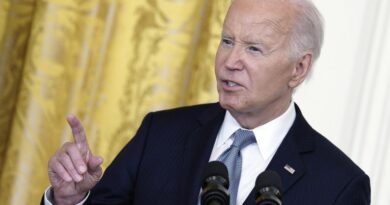Political bias concealing the truth about the COVID-19 pandemic increases vulnerability for future outbreaks

Consider a scenario where a new virus caused the death of 20 million individuals and half of American politicians minimized concerns regarding its origins.
This is the situation that unfolded on Monday, as certain members of Congress chose to downplay the significance of bringing Dr. Anthony Fauci, the former director of the National Institute of Allergy and Infectious Diseases, before a House subcommittee investigating the origins of COVID-19.
Representative Debbie Dingell (D-Mich.) insinuated that the hearing was a mere charade, while Representative Kathy Castor (D-Fla.) asserted that the evidence pointed to COVID-19 originating from an animal market.
No one delved into how the National Institutes of Health circumvented a ban on gain-of-function research, enacted under the Obama administration out of concern for a potential lab leak causing a pandemic.
Furthermore, questions regarding a 2018 experiment conducted by NIAID researchers in which bats were infected with Wuhan coronaviruses were left unanswered.
Why was the US funding research on Wuhan coronaviruses in Montana?
This question remains unanswered.
Ironically, critical clues about the origins of COVID-19 have emerged from US government documents.
The Wuhan lab’s 2018 DEFUSE grant provided a blueprint for genetically modifying COVID-19. However, the information was not made public until a whistleblower exposed it.
There is substantial circumstantial evidence suggesting a close relationship between the US government and the Wuhan lab through EcoHealth Alliance. This information came to light thanks to whistleblowers and FOIA requests, as Fauci and other federal employees failed to disclose it.
During a recent congressional testimony by Dr. David Morens, it was revealed that NIAID scientists went to great lengths to conceal communications between Fauci and external virologists.
One email exchange showed Morens boasting about knowing how to delete messages after a FOIA request had been filed to make them public, ensuring their safety.
Safe from what?
A FOIA-revealed document detailed secret meetings among top US virologists who informed Fauci on February 1, 2020, that they believed COVID-19 originated from a lab.
Shortly after, these virologists published a scientific “study” in Nature concluding definitively that the pathogen was not lab-manufactured.
When questioned before the House in January, Fauci claimed he “did not recall” key details over 100 times.
Despite this, during Monday’s hearing, several House subcommittee members opted not to question him about dangerous gain-of-function research, which is still ongoing.
Earlier this year, a Chinese lab published new virus manipulation experiments, and two years ago Boston University researchers alarmed government officials by reporting they had enhanced the lethality of a COVID virus strain.
How can we effectively prepare for future pandemics without thoroughly investigating the origins of the last one and halting the types of experiments that likely led to COVID-19?
This issue should transcend partisan divides.
However, Fauci has become a polarizing figure aligned with the Democratic Party.
During Monday’s hearing, when Representative Jill Tokuda (D-Hawaii) criticized the Great Barrington Declaration, an alternative to pandemic lockdowns, Dr. Fauci joined in, denouncing it as flawed.
Yet, neither mentioned the data demonstrating that Sweden, which adopted the Great Barrington approach, had significantly fewer deaths per capita than the US—a stark indictment of our COVID-19 response.
Fauci’s defenders now contend that we may never know the origin of COVID-19 and therefore should cease investigating the US government’s relationship with the Wuhan lab.
However, the entire pandemic could likely have been preventable.
To avert future pandemics, a degree of humility from Fauci and proponents of risky gain-of-function research is crucial.
Marty Makary MD, MPH is a professor at the Johns Hopkins School of Medicine and author of the upcoming book “Blind Spots: When Medicine Gets It Wrong and What It Means for Our Health.”



